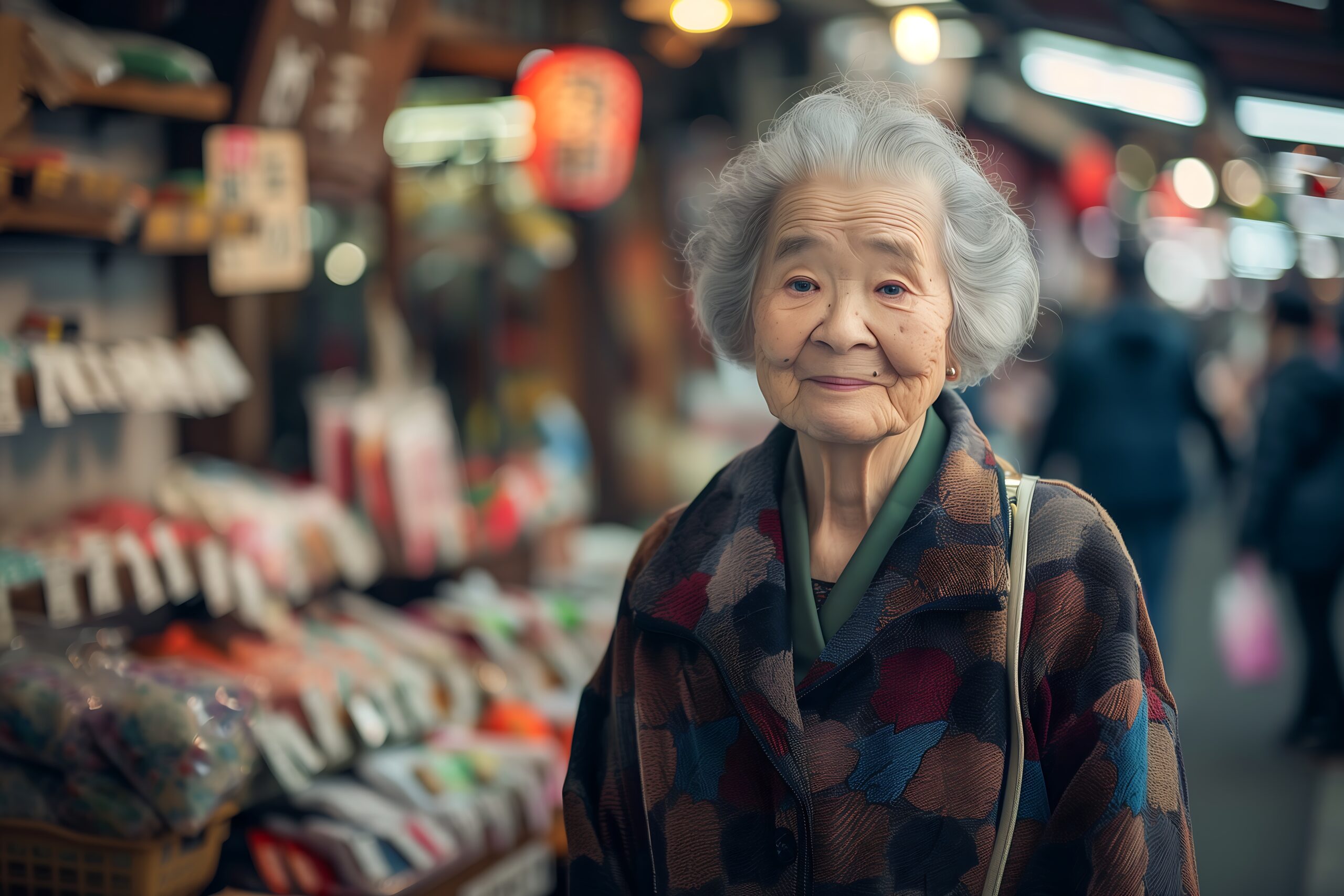In the heart of East Asia, the island nation of Japan holds a deeply ingrained tradition that has withstood the test of time—respect for the elderly. This reverence is more than a cultural footnote; it’s a way of life that permeates every aspect of Japanese society. From the subtle bow, known as Ojigi, to national holidays celebrating the aged, Japan’s dedication to its elders stands as a testament to the nation’s values. This article explores the multifaceted dimensions of Japan’s enduring tradition, offering insights into how respect for the elderly shapes the country’s present and forecasts its future.
Japan’s Age-Old Reverence for the Elderly Unveiled
Japan’s profound respect for the elderly is not just a modern-day phenomenon but a timeless principle that has been part of the societal fabric for centuries. This reverence is evident in various aspects of Japanese culture, from traditional arts to the legal framework designed to protect senior citizens. Elders are often looked upon as repositories of wisdom, their advice sought in family matters and community decisions alike. This deep-seated respect has contributed to Japan having one of the highest life expectancies in the world.
Exploring the Roots of Japan’s Senior Respect
The roots of Japan’s respect for the elderly can be traced back to Confucian principles, which emphasize filial piety, or respect for one’s parents and ancestors, as a paramount virtue. These traditional values have been woven into the fabric of Japanese society, influencing everything from education to legislative measures aimed at protecting the elderly. Additionally, the Shinto belief in kami, or spirits, which often venerates ancient and wise entities, reinforces the cultural norm of honoring those who have lived long lives.
The Art of Ojigi: Deeper Than a Bow
Ojigi, the Japanese act of bowing, is a physical manifestation of respect that holds deep significance in the context of venerating the elderly. The depth and duration of a bow can convey the level of respect being shown, with deeper bows reserved for those of higher status or, in many cases, advanced age. This simple yet profound gesture encapsulates the respect for hierarchy and age that is central to Japanese social interaction, serving as a daily reminder of the elderly’s esteemed position in society.
Silver Power: Elders Shaping Japanese Society
In Japan, the elderly are not merely respected; they are active participants and influential figures in society. Termed "Silver Power," this demographic exerts considerable influence over Japan’s economy, politics, and culture. From consumer trends to political elections, the voices of the elderly carry weight, prompting businesses and policymakers to cater to their preferences and needs. Moreover, retired professionals often take on roles as consultants or advisors, leveraging their experience to guide the next generation.
Wisdom Keepers: The Role of Seniors in Japan
Seniors in Japan are revered as wisdom keepers, their counsel sought in matters ranging from family decisions to business strategies. This role is not incidental but is rooted in the Confucian tradition of valuing the insights and experiences that come with age. Elders are often seen as living links to the past, their stories and teachings helping to bridge the gap between generations. Through formal and informal gatherings, they impart life lessons and moral guidance, enriching the social fabric of Japan.
Celebrating Respect for the Aged Day Nationwide
Respect for the Aged Day, or Keiro no Hi, is a national holiday in Japan that exemplifies the country’s commitment to honoring its elderly population. Celebrated annually on the third Monday of September, this day sees various festivities, including special events at care homes and community centers, and families spending time with their elderly relatives. It’s a poignant reflection of Japan’s collective gratitude towards its older citizens, acknowledging their contributions and ensuring they feel valued and respected.
From Lore to Law: Protecting Japan’s Elderly
Japan’s commitment to its elders extends beyond cultural practices to the realm of legislation. The country has implemented various laws aimed at ensuring the welfare and protection of senior citizens. These include policies on healthcare, pension systems, and elder abuse prevention. The government’s proactive stance is a reflection of its acknowledgment of the challenges posed by an aging population and its determination to uphold the dignity of its elderly citizens.
Intergenerational Bonds: Japan’s Secret to Unity
The strength of intergenerational bonds is a defining feature of Japanese society. These bonds are fostered through shared activities, such as festivals, and traditional practices, where the young and old come together, bridging the gap between generations. Schools often organize visits to elder care facilities, while families traditionally live with or near their elderly relatives, ensuring a continuity of care and respect across generations. This close-knit familial structure strengthens societal cohesion and ensures the elderly remain integral to the community fabric.
Keiro no Hi: Honoring Elders Beyond the Holiday
While Keiro no Hi is a significant day for celebrating the elderly, respect and reverence for older individuals pervade everyday life in Japan. This continuous honor is evident in the daily gestures of respect, the prioritization of elderly needs in public policy, and the inclusion of seniors in social and family activities. The holiday thus serves as a focal point for a year-round tradition of elder respect, highlighting the societal value placed on aging individuals.
Technology Meets Tradition in Elderly Care
Japan’s innovative spirit has found its way into elderly care, with technology and tradition converging to meet the needs of an aging population. Robotics and AI are being harnessed to assist with physical tasks and provide companionship, while traditional practices in diet, exercise, and community living contribute to the longevity and health of Japanese seniors. This blend of old and new ensures that respect for the elderly is maintained, even as society evolves.
The Future of Japan’s Aging Population
As Japan faces the challenges of a rapidly aging population, the country’s tradition of elder respect is more crucial than ever. The societal structures and values that uphold this respect are being tested, necessitating innovative solutions to healthcare, employment, and social integration for the elderly. Japan’s response to these challenges will not only shape the future of its aging society but also offer valuable lessons to countries worldwide.
Preserving Dignity: Lessons from Japan’s Elders
Japan’s enduring tradition of elder respect teaches a universal lesson in dignity, compassion, and societal cohesion. By valuing the elderly, not as a burden but as a cherished source of wisdom and guidance, Japan exemplifies how societies can honor their past while building for the future. This deep-rooted respect ensures that the elderly enjoy a quality of life that is both meaningful and dignified, setting a benchmark for the world.
Japan’s tradition of respecting the elderly is a multifaceted jewel in the crown of its cultural heritage. From the art of Ojigi to the nationwide celebration of Keiro no Hi, Japanese society showcases a profound reverence for its seniors, integrating them into the fabric of daily life. As Japan navigates the complexities of an aging population, its enduring values of respect and dignity for the elderly offer insights and inspiration for societies worldwide. In a world grappling with demographic shifts, Japan’s age-old tradition underscores the timeless virtue of honoring our elders, reminding us that their well-being and wisdom are integral to our collective future.








